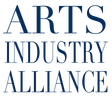|
This is a follow up from last year's post regarding the lack of support of local and regional musical acts from the larger venues like The Music Hall, 3S Artspace and Bank of New Hampshire Pavilion. Arts Industry Alliance has been active in attempts to bring this problem to the attention of decision makers within each of these organizations.
Bank of NH Pavilion received a lot of negative feedback on social media from regional musicians who were asked to perform for no compensation on the Magic Hat sponsored stage located in the parking lot. The administrator of Bank of NH Pavilion's facebook page was initially dismissive of the concerns raised by musician Chad Verbeck, leader of NH-based band Rockspring, who had recently turned down the opportunity to play on the stage. Here is the post from Bank of NH Pavilion: We now run two stages for the sole purpose of highlighting regional entertainment at the shows, pay all the expenses for these two stages and give the acts tickets to the show and give them an opportunity to make commissions on tickets for promoting the shows. The ones that are fortunate enough to get these gigs are very appreciative of the opportunity this affords them, above most other opportunities presented to them. Don't worry -- We promise to never subject you to such terrible tyranny. After several other musicians from the area commented on the post, the conversation got a lot more serious. Chris Klaxton, whose band Tan Vampires had also turned down the “exposure” gig, pointed out the long-term risks involved when professional musicians enable these types of business practices. AIA eventually joined the debate, and notified Bank of NH Pavilion that we would be contacting Magic Hat and Bank of NH to confirm whether they were aware that their sponsorship dollars were being used to produce events that required talent from their community to perform for free and even help sell tickets. The Pavilion representative ultimately agreed to revisit their current business model for the following season. AIA followed through with contacting the sponsors, and even sat down with a member of the Bank of NH Board of Directors, who also happens to be a supporter of AIA. We are pleased to report that for the upcoming concert season, the Pavilion has implemented a policy that “All acts will be paid on all stages no less than $100 per player up to $500 per act.” A show in February that saw AIA working with 3S Artspace to book regional soul/roots artist Qwill opening for national headliner Sinkane was also a promising step in the right direction. The addition of Qwill brought many new people to this upstart venue, and cultivated new followers for both artists. The opener actually played to a larger crowd than the headliner, but was obviously compensated a small fraction of the talent budget. An attempt was made to capitalize on the momentum of the show and quickly book another gig featuring Qwill, which would cost the community-funded venue much less, but changes in the organization’s leadership made this difficult. This well-documented situation at 3S has proven to be yet another example where excessive amounts of funding, energy and support of “the arts” gets wasted on bureaucratic drama. AIA was able to shift the momentum of Qwill’s appearance at 3S to another opening slot at independently owned Birdseye Lounge in Portsmouth. Qwill's performance made a firm statement that touring headliners aren’t always superior to their regional openers. Brooklyn-based Nat Osborn gave props after his shaky first song, ''Wow, let's all give it up for Qwill again, I guess you never know where you're gonna run into an amazing artist''. This positive momentum will be capitalized on with another show at Birdseye on May 20th, featuring both Qwill and celebrated seacoast soul/hiphop artist Rachel Mayo aka Rayel. There is a dialogue open with one of the board members at The Music Hall about increasing opportunities for local and regional acts on their stage, especially as opening acts for national headliners. There remains an underlying tone that the Goliath non-profit is the beacon of all culture on the seacoast, and anyone wishing to engage with them must first jump through some prerequisite hoops. This stance places a lot of pressure on local artists, with no promotional support or infrastructure behind them to prove their monetary value (even for opening slots). An interesting approach coming from an organization that uses their poor box office returns as a tool to raise more money to spend on booking more national acts. Not a very sustainable business model.
0 Comments
|
AIA• EDUCATION & RECOGNITION Archives
December 2019
Categories |

 RSS Feed
RSS Feed